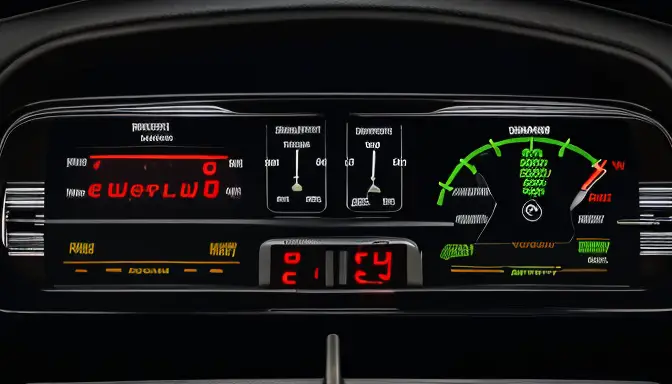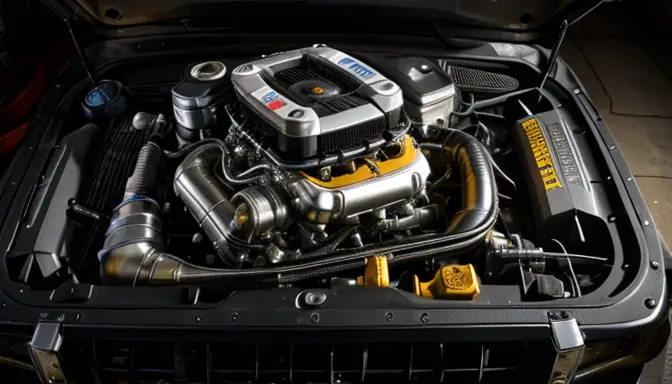When it comes to understanding the fuel consumption of the Detroit 8V92 engine, there are several key factors to consider. From its unique specifications to the impact of driving habits, this powerful engine has a significant role in the automotive industry. Let’s delve into the details to uncover the secrets behind its fuel efficiency and performance.
- Overview of the Detroit 8V92 Engine
- Factors Affecting Fuel Efficiency
- Optimizing Fuel Efficiency
- Comparative Analysis with Modern Engines
- Environmental Impact
- Case Studies and Real-World Performance
- Future Trends and Innovations
Overview of the Detroit 8V92 Engine
The Detroit 8V92 engine is a powerhouse in the automotive industry, known for its robust performance and reliability. This legendary engine is revered for its exceptional power output and durability, making it a popular choice for a wide range of applications. Equipped with a V8 configuration and 2-stroke design, the Detroit 8V92 engine delivers impressive torque and horsepower, ensuring optimal performance in demanding conditions. Its innovative features, such as the turbocharged system and efficient fuel delivery, set it apart from its counterparts.
Key features of the Detroit 8V92 engine include:
- Powerful Performance: With a displacement of 736 cubic inches, this engine offers unmatched power and torque.
- Durable Construction: Built to withstand heavy-duty usage, the Detroit 8V92 engine is known for its longevity and reliability.
- Efficient Cooling System: The engine’s advanced cooling system ensures optimal temperature regulation even under extreme conditions.

Factors Affecting Fuel Efficiency
When it comes to the fuel efficiency of the Detroit 8V92 engine, several key factors come into play that can significantly impact its performance. Understanding these factors is crucial for optimizing fuel consumption and reducing operational costs. Let’s delve into the main elements that influence the fuel efficiency of this powerful engine:
- Engine Load: The amount of load placed on the engine directly affects its fuel consumption. Higher loads typically result in increased fuel usage, while lighter loads can improve efficiency.
- Speed: Operating the Detroit 8V92 engine at higher speeds can lead to higher fuel consumption. Maintaining a consistent speed and avoiding unnecessary acceleration can help conserve fuel.
- Maintenance: Regular maintenance and servicing are essential for ensuring optimal fuel efficiency. Properly maintained engines operate more efficiently and consume less fuel.
- Driving Habits: Driver behavior plays a significant role in fuel efficiency. Aggressive driving, frequent braking, and idling can all contribute to higher fuel consumption.
By paying attention to these critical factors and implementing strategies to address them, operators can improve the fuel efficiency of the Detroit 8V92 engine and enhance overall performance.
Optimizing Fuel Efficiency
When it comes to optimizing fuel efficiency of the Detroit 8V92 engine, there are several strategies and tips that can make a significant difference in reducing overall fuel consumption and operating costs. Let’s delve into some key methods:
- Maintain Regular Engine Tune-Ups: Keeping the engine well-maintained with regular tune-ups and servicing can ensure optimal performance and fuel efficiency.
- Monitor Driving Habits: Encouraging drivers to adopt fuel-efficient driving habits such as smooth acceleration and deceleration can lead to substantial fuel savings.
- Proper Tire Inflation: Maintaining the correct tire pressure can reduce rolling resistance and improve fuel efficiency.
- Use High-Quality Fuel: Opting for high-quality fuel and additives can enhance engine performance and efficiency.
- Reduce Idle Time: Minimizing idle time and unnecessary engine idling can help conserve fuel and lower overall consumption.

Comparative Analysis with Modern Engines
When comparing the fuel consumption of the Detroit 8V92 engine with modern engines, several key factors come into play. Let’s delve into a comparative analysis to understand how this legendary engine stacks up against its contemporary counterparts.
- Technology: Modern engines incorporate advanced technologies such as direct injection and variable valve timing, which can significantly improve fuel efficiency compared to the Detroit 8V92.
- Efficiency: The Detroit 8V92, known for its robust performance, may lag behind modern engines in terms of fuel efficiency due to advancements in engine design and materials.
- Emissions: Modern engines are engineered to meet stringent emission standards, resulting in lower carbon footprint compared to the Detroit 8V92, which was designed in a different era.
Despite its historical significance and reliability, the Detroit 8V92 engine may struggle to compete with the fuel efficiency and environmental impact of modern engines. As automotive technology continues to evolve, the challenge lies in balancing performance with sustainability to meet the demands of a changing world.
Environmental Impact
The of the Detroit 8V92 engine is a crucial aspect to consider in today’s environmentally conscious world. This powerful engine, known for its performance, also has implications for emissions and sustainability. The fuel consumption of the Detroit 8V92 engine directly affects the environment through the release of exhaust gases and pollutants. As this engine operates, it contributes to the overall carbon footprint and air quality, impacting both local and global ecosystems.
Furthermore, the maintenance practices and fuel efficiency of the Detroit 8V92 engine play a significant role in its environmental impact. Proper maintenance not only ensures optimal performance but also reduces harmful emissions. By adopting eco-friendly driving habits and adhering to recommended maintenance schedules, operators can minimize the engine’s negative effects on the environment.

Case Studies and Real-World Performance
When it comes to understanding the real-world performance of the Detroit 8V92 engine, case studies play a crucial role in showcasing its fuel consumption capabilities in various applications and scenarios. These studies provide valuable insights into how the engine performs under different conditions and usage patterns. By examining these real-world examples, we can gain a deeper understanding of the engine’s efficiency and effectiveness in practical settings.
One notable case study involved a transportation company that integrated the Detroit 8V92 engine into its fleet of heavy-duty vehicles. Through meticulous monitoring and data analysis, the company was able to optimize the engine’s fuel efficiency by implementing regular maintenance schedules and driver training programs. As a result, they achieved significant cost savings and reduced their overall fuel consumption, highlighting the engine’s performance in a demanding operational environment.
Future Trends and Innovations
When it comes to the future trends and innovations in the realm of engine technology, the possibilities are as vast as the open road. Engineers and researchers are constantly pushing the boundaries of fuel efficiency, seeking ways to make engines like the Detroit 8V92 even more economical and environmentally friendly. Let’s delve into some of the exciting advancements that could revolutionize the way we think about engine performance:
- Hybrid Technology Integration: One of the key trends on the horizon is the integration of hybrid technology into traditional diesel engines. By combining the power of electric motors with the efficiency of diesel combustion, future engines could achieve unprecedented levels of fuel efficiency.
- Advanced Engine Management Systems: The development of sophisticated engine management systems promises to optimize fuel consumption by fine-tuning performance based on real-time data. These systems could adapt to driving conditions instantaneously, maximizing efficiency at every turn.
- Alternative Fuel Sources: As the world shifts towards a more sustainable future, engines may increasingly utilize alternative fuel sources such as biofuels, hydrogen, or even synthetic fuels. These eco-friendly alternatives could significantly reduce emissions and reliance on fossil fuels.
- Nanotechnology and Materials Innovation: Breakthroughs in nanotechnology and materials science could lead to the development of lighter, stronger engine components that enhance performance while reducing fuel consumption. From advanced coatings to precision-engineered parts, the future looks bright for engine efficiency.
As we look ahead to the future of engine technology, one thing is clear: innovation is the fuel that drives progress. With each new advancement, engines like the Detroit 8V92 have the potential to become even more efficient, powerful, and environmentally conscious. The road ahead may be paved with challenges, but with ingenuity and determination, the engines of tomorrow are sure to surprise and delight us all.
Frequently Asked Questions
- What is the typical fuel consumption rate of the Detroit 8V92 engine?
The fuel consumption of the Detroit 8V92 engine can vary based on factors such as load, speed, and maintenance. On average, it consumes around X gallons of fuel per hour under normal operating conditions.
- How can I improve the fuel efficiency of the Detroit 8V92 engine?
To enhance fuel efficiency, consider maintaining proper engine tune-ups, monitoring driving habits, and ensuring optimal load management. Additionally, regular maintenance and using high-quality fuel can also contribute to better fuel economy.
- Is the Detroit 8V92 engine environmentally friendly?
While the Detroit 8V92 engine is known for its robust performance, it may have higher emissions compared to modern engines. To minimize environmental impact, proper maintenance and adherence to emission regulations are crucial.
- What Happened to Bluewater Yachts? The Inside Story - May 31, 2024
- Upgrade Your Boat’s Water Pump to the Mach 5 - May 30, 2024
- Upgrade Your Boat with the Big Stuff Stuffing Box - May 30, 2024


